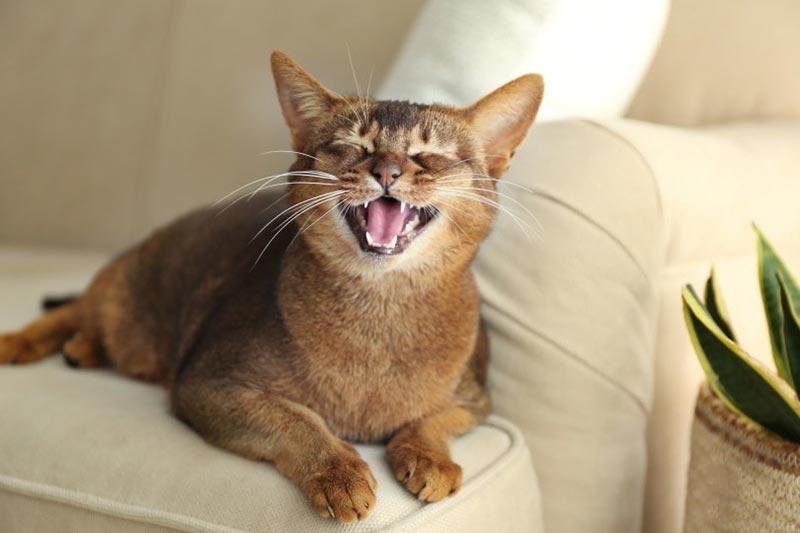Cats are fascinating creatures with unique behaviors and quirks. One of these quirks is meowing after eating, which may puzzle and even worry some cat owners.
In this article, we’ll delve into the reasons behind this behavior and provide some solutions to help you and your feline friend live happily together.
Why Do Cats Meow After Eating?
There are several reasons why cats meow after eating, ranging from expressing satisfaction to medical issues. Here are some of the most common reasons why your cat may meow after eating:
Expressing Satisfaction
One possible reason why cats meow after eating is to express their satisfaction. Just like humans, cats enjoy good food, and meowing after a meal may be their way of saying, “that was delicious!” This behavior is more common in cats that are happy and content, and it usually lasts for a few minutes.
Seeking Attention
Another possible reason why cats meow after eating is to seek attention from their owners. Cats are social animals that crave attention and interaction with their humans. If your cat meows after eating, they may be trying to engage you in play or cuddles.
Medical Issues
Meowing after eating may also indicate an underlying medical issue. Some cats may experience discomfort or pain after eating due to dental problems, digestive issues, or allergies. If you notice other symptoms such as vomiting, diarrhea, or lethargy, it’s essential to take your cat to the vet for a checkup.
Behavioral Problems
Meowing after eating can also be a sign of behavioral problems, such as anxiety or stress. Some cats may develop food-related anxiety, especially if they’ve had negative experiences with food in the past. In some cases, meowing after eating may also be a sign of compulsive behavior.
Hunger or Thirst
Cats that meow after eating may still be hungry or thirsty. Some cats have a higher metabolism and require more food or water than others. If you notice that your cat is meowing excessively after eating, try offering them more food or water to see if it helps.
Aging
Finally, meowing after eating may be a sign of aging in cats. As cats age, they may develop changes in their behavior and habits, including meowing more frequently. This behavior is more common in senior cats, and it’s usually not a cause for concern unless accompanied by other symptoms.
How to Address Meowing After Eating
If your cat is meowing after eating, there are several steps you can take to address the behavior. Here are some tips to help you and your cat:
Ensure a Comfortable Eating Environment
Make sure your cat’s eating area is comfortable and free of distractions. Cats prefer a quiet and peaceful environment when they eat, so avoid placing their food bowl in a busy area or near loud noises.
Offer Food in Smaller Portions
If your cat is meowing after eating, try offering their food in smaller portions throughout the day. This can help prevent overeating and reduce the chances of meowing after meals.
Schedule Regular Feeding Times
Establishing a regular feeding schedule can also help reduce meowing after eating. Cats thrive on routine, and having set meal times can provide them with a sense of security and comfort.
Consult with a Vet
If you’ve tried addressing your cat’s meowing after eating with the above tips and haven’t seen any improvement, it’s essential to consult with a vet. They can perform a thorough exam to rule out any underlying medical issues and provide recommendations on how to address the behavior.
Conclusion
Meowing after eating is a common behavior among cats that can have various causes. By understanding why your cat meows after eating, you can better address the behavior and ensure your cat’s overall health and happiness.

